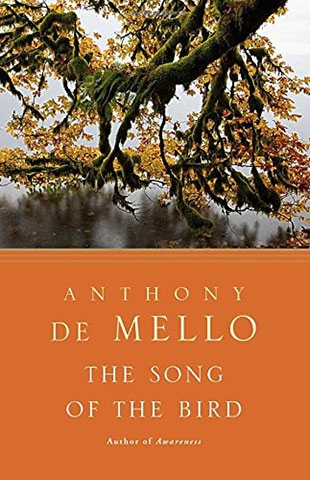Father Anthony de Mello (1931 - 1987) was an Indian Jesuit spiritual teacher who gave workshops, conferences, and seminars all over the world. He pioneered post-denominational Christianity and proclaimed a lyrical mysticism rooted in story and imagination. Best of all, he presented concrete spiritual practices and exercises designed to silence the mind and give expression to the yearnings of the heart.
We live in a story-shaped world and are always looking for tales that mesmerize, enlighten, or edify us in some life-changing way. De Mello loved these vehicles of grace and revelation. In this paperback, he bequeaths to us 124 stories/parables from a variety of religions and cultures around the world — Buddhist, Sufi, Hindu, Chinese, Hasidic, Russian, and Christian.
Every story is about you. That is a truth that has rarely been discussed or understood in all of its radical import. It means that a tale can trek inward and take up residence in your heart. It also means that any story that brings tears to your eyes or starts you shaking with laughter is meant for you.
De Mello shares tales that have an evergreen quality to them; they are as relevant now as they were years ago. For instance, don't get a cut from the sharp edges in these two.
In the first, "A tourist says to his guide, 'You have a right to be proud of your town. I was especially impressed with the number of churches in it. Surely the people here must love the Lord.'
" 'Well,' replied the cynical guide, 'they may love the Lord, but they sure as hell hate each other.' "
In another one, Jesus is attending a football match:
"Jesus Christ said he had never been to a football match. So we took him to one, my friends and I. It was a ferocious battle between the Protestant Punchers and the Catholic Crusaders.
"The Crusaders scored first. Jesus cheered wildly and threw his hat high up in the air. Then the Punchers scored. And Jesus cheered wildly and threw his hat high up in the air.
"This seemed to puzzle the man behind us. He tapped Jesus on the shoulder and asked. 'Which side are you rooting for, my good man?'
" 'Me?' replied Jesus, visibly excited by the game. 'Oh, I'm not rooting for either side. I'm just enjoying the game.' "
The message we get from these stories? Competition is not in Jesus' vocabulary and certainly his understanding of community had nothing to do with lording (a pun) it over others like the townsfolk divided by religious hatred.
De Mello savors stories and enables us to step inside them. All it takes is a yearning for freedom and meaning.
